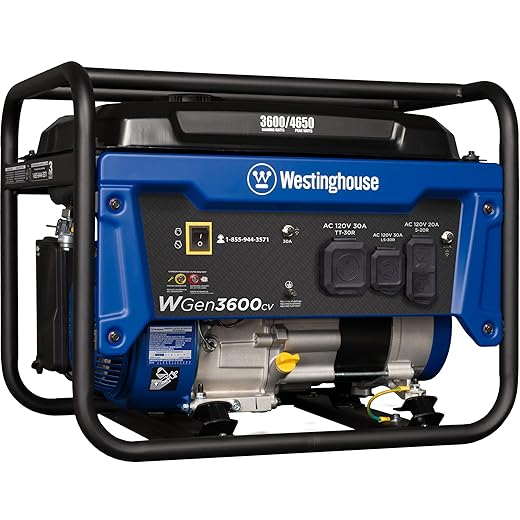10 Best Power Generator Reviews 2024








Power Generators: Your Guide to Choosing the Right One
In our fast-paced world, a reliable power generator can be a lifesaver. Whether you're camping in the great outdoors, preparing for a sudden power outage, or powering tools at a job site, having the right generator can make all the difference. But with so many options on the market, how do you choose the right one? Let's dive into the world of power generators and explore the key factors to consider.
Understanding Power Generators
At its core, a power generator is a device that converts mechanical energy into electrical energy. Think of it as a backup heart for your home or business, pumping electricity when the main supply falters. There are two primary types of generators: **portable** and **standby**.
– **Portable Generators**: These are the versatile workhorses of the generator world. They can be moved easily and are typically powered by gasoline. They provide temporary power for tools, appliances, or lights. Imagine having a trusty sidekick that can be there when you need it most, whether it's for a backyard barbecue or a camping trip.
– **Standby Generators**: These are more like a silent guardian. They are permanently installed, connected directly to your home's electrical system, and automatically kick in during a power outage. These generators run on natural gas or propane and provide a seamless transition from grid power to generator power. Picture it as an ever-watchful sentinel, ready to jump into action at a moment's notice.
Key Considerations When Choosing a Generator
When selecting the right generator for your needs, consider the following factors:
1. Power Output
The first question you should ask is, “What will I be powering?” The generator's wattage capacity determines how many devices it can run simultaneously. Start by listing the essential appliances you want to power during an outage. For instance, a refrigerator may require around 600-800 watts, while a space heater can demand up to 1500 watts.
A useful tip: look for a generator with at least 20% more wattage than what you estimate you'll need. This buffer ensures that your generator won't be overworked, prolonging its lifespan.
2. Fuel Type
Generators can run on various fuel types, including gasoline, propane, and diesel. Each has its pros and cons. Gasoline generators are typically more affordable and widely available but can have a shorter shelf life when stored. Propane generators, on the other hand, are cleaner and can be stored indefinitely. Think of choosing fuel like picking your favorite flavor of ice cream—each offers unique benefits, but your choice depends on your specific taste and needs.
3. Noise Level
Have you ever tried to relax during a thunderstorm, only to be jolted awake by the rumble of a generator? Noise levels vary significantly between models. If you're using your generator in a residential area or during a camping trip, you might want to opt for a quieter inverter generator. These models are designed to run at lower decibels, making them ideal for noise-sensitive situations.
4. Portability
If you plan to move your generator frequently, consider its weight and size. Portable generators generally weigh between 50 to 120 pounds, so think about how you'll transport it. Some models come with wheels or handles for easier mobility. It's like choosing a suitcase for a trip: the right one will make your life a lot easier!
5. Safety Features
Safety should always be a priority. Look for generators with features like automatic shut-off, CO (carbon monoxide) detection, and overload protection. These features act as a safety net, ensuring you can use your generator without unnecessary worry. Just like wearing a seatbelt, these precautions can save you from potential peril.
Conclusion
Choosing the right power generator is a pivotal decision that can affect your comfort and safety during outages or outdoor adventures. By considering the generator's power output, fuel type, noise level, portability, and safety features, you can find a model that perfectly suits your needs. Don't wait for the next storm to hit—be proactive and equip yourself with a reliable power source. After all, in the world of electricity, it's better to have it and not need it than to need it and not have it!
FAQs
1. How often should I run my generator?
It's recommended to run your generator at least once a month for about 30 minutes. This helps ensure it's in good working order and helps prevent fuel from going stale.
2. Can I connect my generator directly to my home’s wiring?
No, connecting a generator directly to your home's wiring can be dangerous and is illegal without proper transfer switches. Always consult a professional electrician for safe installation.
3. How do I maintain my generator?
Regular maintenance involves changing the oil, checking the fuel system, inspecting the spark plug, and ensuring the battery is charged. Refer to your generator's manual for a complete maintenance schedule.




